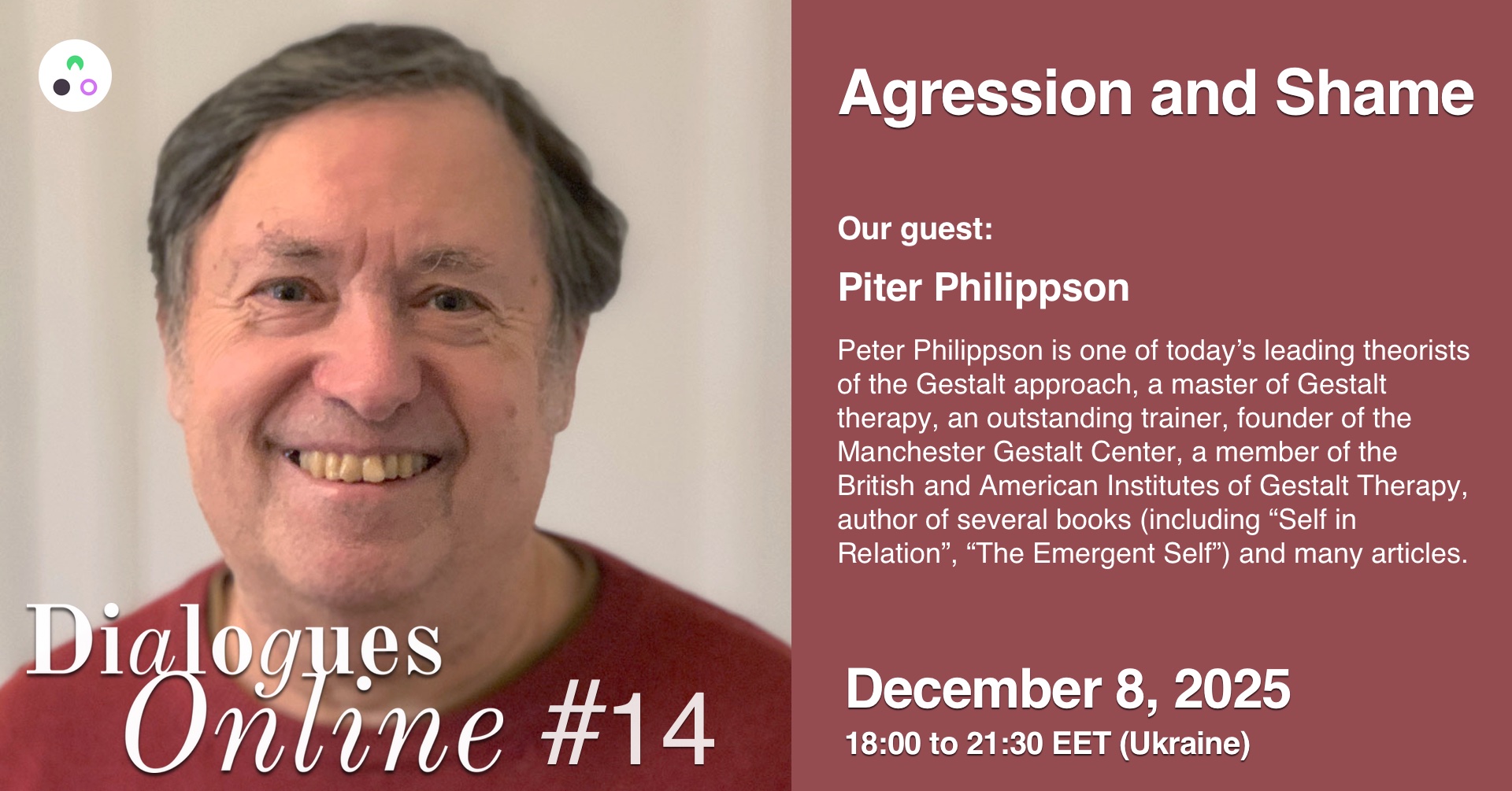
Dialogue Participants:
- Peter PhillipsonGestalt therapist, trainer, founder of the Manchester Gestalt Center. United Kingdom.
- Olga KadyshevaOlga Kadysheva, psychologist, crisis psychologist, Gestalt therapist, leading trainer of NAGTU “Ukrainian Gestalt Institute”. Ukraine – France
- Mikhail Slutskin, psychologist, accredited Gestalt therapist and supervisor of NAGTU “Ukrainian Gestalt Institute”, leading supervisory and therapeutic groups. Ukraine – Germany
- Mikhail Baytalsky, philosopher, PhD, Gestalt therapist HIGiP (Kharkov Institute of Gestalt and Psychodrama). Ukraine – USA
- Translator: Maria Koreneva is a Gestalt therapist and theater teacher. Maria spent more than a dozen years abroad before returning to Ukraine and practicing psychology. For several years she worked as an English interpreter in educational programs from the Library of Congress.
About:
Peter Phillipson – one of today’s leading theorists of the Gestalt approach, a master of Gestalt therapy, an outstanding trainer, founder of the Manchester Gestalt Center, a member of the British and American Gestalt Therapy Institutes, author of several books (including “Self in Relation”, “The Emergent Self”) and many articles.
We will talk about the place of aggression and shame in therapy.
When: December 8, 2025 p.
Meeting duration: 3.5 hours, from 18:00 to 21:30 (Kyiv time).
Event plan:
Introduction: 5 minutes.
Speakers’ dialog: ~1 hour.
Questions on the topic: 15 minutes.
Break: 15 minutes.
Discussion in working groups: 55 minutes.
Questions and exchange of opinions in a common group: 1 hour.
Что такое Диалоги Онлайн?
Dialogues Online is a space for collaborative reflection on what is most important in the ongoing crisis. Dialogues Online is a continuation of the “Dialogues in Toulouse” held in May 2023 in the framework of the school for Gestalt therapists for intercultural exchanges.
For whom:
▪️ For practicing psychologists with a Gestalt approach and other areas of psychology and psychotherapy.
▪️ For students in relevant programs.
▪️ For anyone interested in psychology and philosophy.
▪️ For those seeking themselves and their place in a changing world, for those who are curious, sensitive, changing themselves, open to new experiences and resources.
For: Education in psychology, philosophy and anthropology; developing a culture of dialog.
How: by creating a collegial interdisciplinary field for reflection in dialog and polylogue.